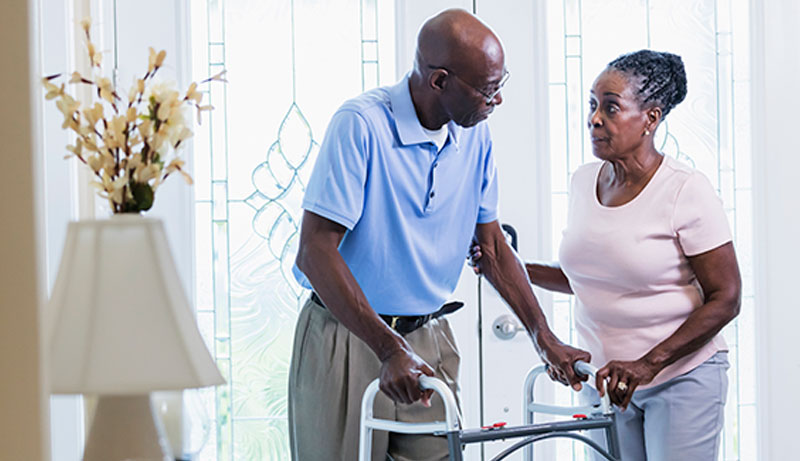
Late-stage Parkinson’s disease creates new challenges for family caregivers.
A Parkinson’s prognosis has an effect on members of the family as well as the person diagnosed. Learning what to expect as the disease progresses is key to being prepared for the changes to come and also to making life the very best it can be each day.
Over the last few months, we have shared information about what to anticipate in the early and middle stages of Parkinson’s disease. Blog posts have included information about what family members can do to best assist a senior with Parkinson’s, and how Grace Home Care’s, experienced caregivers in Topeka, KS and nearby can help. In this closing segment in the series, we offer information about taking care of someone in the late stages of this disease.
Late-Stage Parkinson’s
In the late stage of Parkinson’s disease, a significant level of assistance will become necessary with activities of daily living. By definition, the late stages of Parkinson’s are noted by the senior’s inability to live at home independently. At first, standing and walking may remain possible, but with marked struggle, and as the disease continues to progress, the individual will not be capable of getting out of bed or a chair unassisted.
In combination with a heightened risk for falls, hallucinations and delusions are also common. As a result, full-time, day-and-night caregiving is important to ensure safety and well-being.
The Effect of Late-Stage Parkinson’s on Family Caregivers
At this point, the worries and day-to-day demands of caregiving can take a toll on a caregiver’s own health. It is quite crucial for family caregivers to reach out and accept help, to continue to be socially connected, and to make respite care a top priority. It is just not feasible for one person alone to manage the around-the-clock care needed for a loved one in late stage Parkinson’s.
How Caregivers Can Help with Late-Stage Parkinson’s Care
With added hands-on care necessary, it’s crucial for caregivers to learn how to safely and efficiently provide this support to decrease the risk of doing harm to either themselves or the person being taken care of.
If the older adult is not currently receiving physical therapy services, seek the advice of the physician for a referral. The physical therapist, while helping maximize the person’s ability level, can also advise family caregivers on the ideal approaches for hands-on assistance.
One new symptom that frequently develops in the later stages of Parkinson’s is freezing, when the person is abruptly (but temporarily) not able to move. Techniques to help break a freezing episode include:
- Using a laser pointer and asking the person to step on the light
- Utilizing a rhythmic noise, such as clapping, and encouraging the individual to take a step with every clap
- Playing music and prompting the individual to walk to the beat
As always, stay close by when the individual is mobile to avoid a fall.
Make sure to provide an abundance of additional time for day-to-day activities such as getting dressed and eating, which are going to take longer now. This is important in preserving the person’s self-sufficiency. Even if it takes longer to complete a task, it is always better to foster as much autonomy as you possibly can.
Emotional and mental health worries also may arise now, including depression, memory problems, anxiety, and dementia. These ailments can be very difficult for a family caregiver to deal with and should be brought to the attention of a loved one’s physician.
Grace Home Care’s exceptional caregiving team is here to help you and the person you love through each stage of Parkinson’s. Especially in these final stages of the disease, having a care partner you can trust and depend on is vital.
Call us at 785-286-2273 for a free in-home consultation to learn more about our senior care services, and ways in which we can ease the transitions through Parkinson’s for both you and your loved one.
